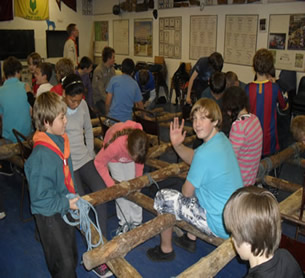

What is the Scout Troop?
The Scout Troop is the third section of 1st Disley Scout Group. The core age-range of the members is from 10½ to 14, although there is some flexibility at either end so members can jon at any time after their 10th birthday and stay with the Troop until their 15th birthday if they want to. The Troop decided to admit girls as well as boys in February 2002 and usually around one-third of our members are female.
When is Scout night?
Scouts meet every Thursday at 7:15 during term time at the Group Headquarters on Station Approach. Sometimes we will go out for the evening and parents will be advised of any special arrangements. We have a system of “Weekly Notices”, sent out each week by e-mail (or on paper to those without e-mail access) with details of forthcoming activities.
How is the Scout Troop structured?
The Troop is organized into three Patrols – Falcons, Kestrels and Peewits, each with between five and eight Scouts, led by a Patrol Leader and an Assistant. Activities and camps are often run in Patrols and the Patrol Leaders help in the organization of the Troop as well as looking after and training younger members of their Patrols. It is important that each Scout is happy with the Patrol in which he or she is placed.
What do Scouts do?
The Scout program is structured around a number of program zones (Scout craft & Adventure, Global, Community, Fit for Life, Creative Expression, Exploring Beliefs & Attitudes) with activities in each. Within this structure, the emphasis of the Troop is on outdoor activities and particularly camping. We normally have several weekend camps each year and a longer camp in the Summer holidays. Our activities are many and varied. Here are just a few: abseiling, acting, archery, axe work, bonfires, bowling, camping, canoeing, climbing, cooking, craft, cycling, debating, electronics, First Aid, games, hiking, international, knotting, local knowledge, meals out, navigation, orienteering, pioneering, rafting, rope bridges, shooting, sports, swimming, trips out, video making, water fights..... and anything else the Scouts want to do. Older Scouts are encouraged to org anise their own activities to develop leadership skills. All activities are supervised by appropriately trained Leaders.
What Badges can Scouts earn?
New Scouts joining the section will first work towards the Membership Award. Cub Scouts may already have completed much of this award by earning their Moving-On Award. There is also a Moving-On Award for older Scouts preparing to move to Explorer Scouts.
Scouts earn participation awards each year for taking part in a balanced programmer. These are awarded annually on the anniversary of the Scout’s first investiture into the Scout movement (whether as a Beaver Scout, Cub Scout or Scout). In addition, there are eight challenge badges (Outdoor, Outdoor Plus, Expedition, Global, Fitness, Adventure, Creative and Community). On completion of five challenges and a personal challenge, a Scout may earn the Chief Scout’s Gold Award, the highest award in the Scout section.
There are also over 70 activity badges for a wide range of hobbies and interests. Some of these will be undertaken as a Troop but in many cases it is up to the individual Scout to work on a badge he or she is interested in. Finally, there are three Group Awards, to be undertaken as a project by the whole Scout Group. These are Environment, Faith and International Friendship.
All of the badges are listed, and the requirements for challenge badges detailed, in the Scout Record Book, which is given to each Scout when he or she is invested. The Record Book also provides space for the Scout to record progress. The Leaders will provide the requirements for the activity badges on request. Further information and ideas for all the badges can be found in the Scout Matrix book, which may be purchased from branches of Outdoors.
What is expected of a Scout?
We expect commitment from our members, and that you enjoy yourselves.
Scouts are expected to attend all meetings whenever possible. If a Scout is unable to attend a weekly meeting, a telephone call to a Leader or Patrol Leader would be courteous.
Scouts are also expected to attend our two annual church services - on the Sundays nearest to St. George’s Day (23rd April) and Remembrance Day (11th November).
We recognize that Scouts have other commitments and may therefore be unable to attend all the camps and weekend activities provided. However, we believe that Scouts who attend as many of these events as possible will derive most benefit from Scouting.
We expect Scouts to wear uniform appropriate to the occasion.
It is a fact that for various reasons, Scouts decide they no longer want to be part of the Troop. We accept that. However we do appreciate a 'contact' to let us know in order to help our planning.
Above all, we expect Scouts to be well-behaved and to act in accordance with the Scout Promise and Law:
| The Scout Promise | The Scout Law |
| On my honour, I promise that I will do my best to do my duty to God and to the Queen, to help other people and to keep the Scout Law. | A Scout is to be trusted. A Scout is loyal. A Scout is friendly and considerate. A Scout belongs to the worldwide family of Scouts. A Scout has courage in all difficulties. A Scout makes good use of time and is careful of possessions and property. A Scout has self-respect and respect for others. |
All Scouts make the Scout Promise when they are invested. The same Promise and Law are used by all members of the Scout Association aged over 10½ years old.
Please read our statement covering Standards, Expectations, Rules and Disciplinary Procedures HERE
Archery
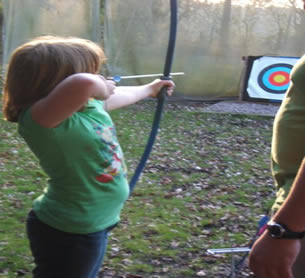
Lacrosse
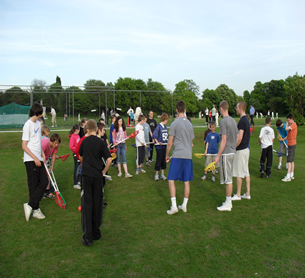
Night Hike
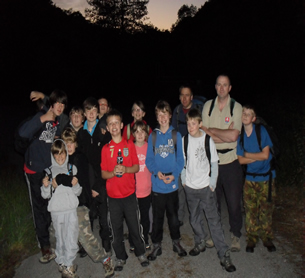
Survival Camp
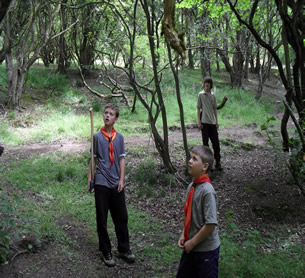
Middlewood Camp
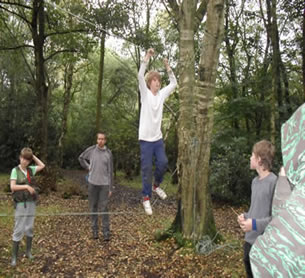
Crafts Evening
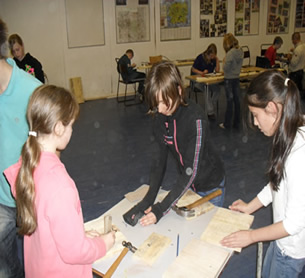
Pioneering
